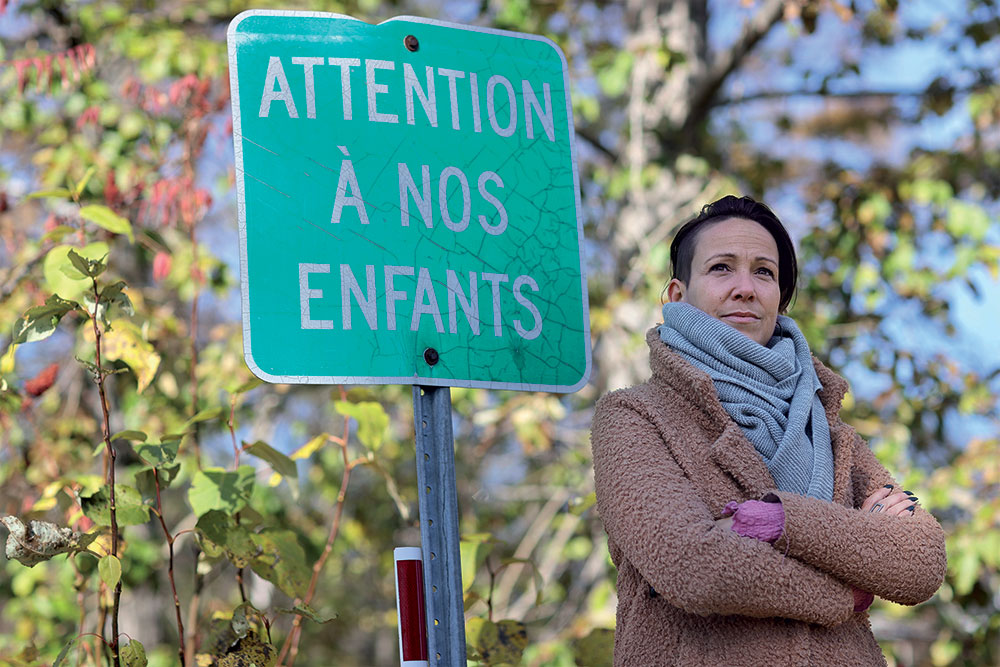Nowhere else in the world can one find a public early childhood educational services network like the one we have here in Québec. Its positive impact on toddlers, particularly on the children’s development and their educational success, has been demonstrated in no uncertain terms by countless studies.
For close to 25 years, Québec’s family policy, the public network’s building block, has helped more and more women go back to work after their pregnancy. The network also provides equal opportunities for all children so they can start their educational journey with a strong foundation thanks to the teachings of highly trained and competent educators.
It’s undeniable: these $8.50-a-day services have changed the lives of Québec families. Even Québec’s economy is reaping the benefits!
 For equal opportunities
For equal opportunities
Valérie Grenon, FIPEQ-CSQ1 President, says: “Investing in early childhood is a strategic choice for Québec because going to a quality childcare service helps foster equal opportunities for our little ones. Among other things, it has a positive impact on the gap between children from less fortunate environments and those more privileged. All children must have a fair chance to access quality childcare services that will have a positive impact throughout their lives.”
Desperately needed places
But let’s put away the pink or baby-blue tinted glasses: all is not well in the early childhood services world. Over 50,000 places are currently needed to meet the demand of our preschoolers and their families across Québec. This situation is a direct result of Liberal Party decisions, favouring the network’s privatization, during their time in government.
During the last election campaign, Coalition avenir Québec (CAQ) had promised it would create 50,000 throughout the network. Three years later, Minister of Families Mathieu Lacombe has yet to deliver on his commitment and mentions that 9,000 are to be created over the next two years, which is definitely not sufficient. The Minister has also announced the tabling of a white paper2 as well as a bill on the early childhood educational services network this fall.
Current working conditions are partly to blame for the scarcity of places in our early childhood network. We are dealing with significant difficulties when attracting and retaining childcare workers, as there is little appreciation for their expertise and the responsibilities they bear.
– Valérie Grenon, FIPEQ-CSQ President
Working conditions need to improve
“Current working conditions are partly to blame for the scarcity of places in our early childhood network,” says FIPEQ-CSQ President Valérie Grenon. “We are dealing with significant difficulties when attracting and retaining childcare workers, as there is little appreciation for their expertise and the responsibilities they bear.”
“Working conditions must reflect how important these jobs are for Québec’s society,” adds CSQ President Éric Gingras. “The government can’t just abandon ship. Places in early childhood depend on better working conditions.”
For a universal and accessible public network
At the CSQ and FIPEQ-CSQ, it goes without saying that educational services are not commercial commodities. A child’s development is one of the government’s responsibilities. “If left to fend for itself, the early childhood educational services network can’t flourish. We have to look further ahead, invest, but most of all, innovate,” states Éric Gingras.
The two union organizations recommend that the Educational Childcare Act guarantee the right of access to a quality place, on par with the right to an education or healthcare. “A modern Québec, one that holds the development of its children to heart, must go one step further and complete the network of early childhood centres (CPEs) and regulated and subsidized home childcare providers that Québec is famous for,” adds Valérie Grenon.
This great project would also help guarantee that all children are able to make their very first school transition with as little vulnerability as possible. “Building on our early childhood network is taking responsibility!” sums up Éric Gingras.
1 Fédération des intervenantes en petite enfance du Québec.
2 Document submitted by the executive branch to the Parliament to outline a problem of public interest as well as legislative or administrative measures the Government plans to take to address the issue.

